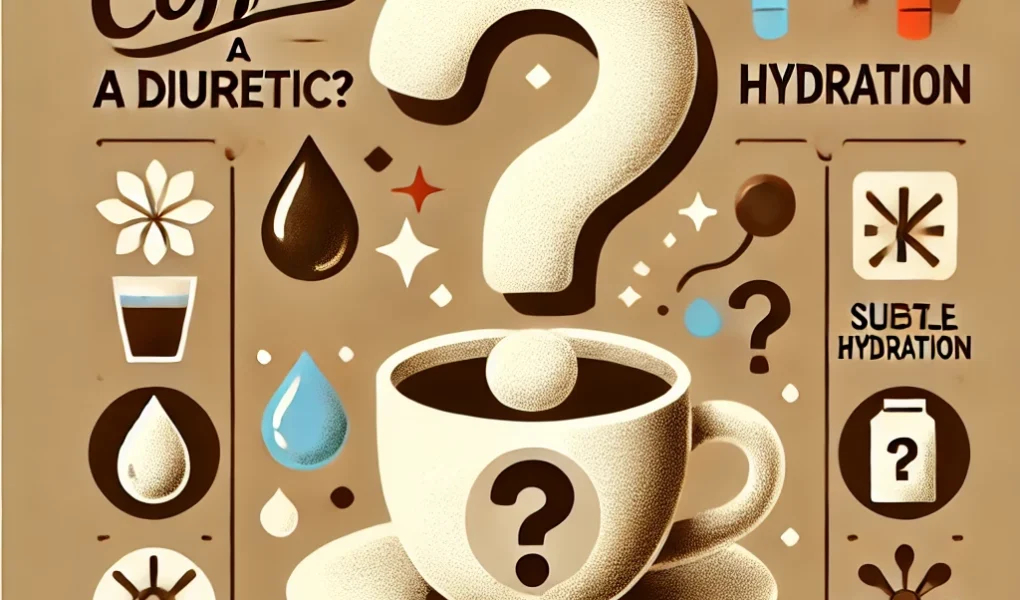For many, coffee is an essential part of the daily routine, offering a comforting boost of energy and warmth. But there’s a common belief that coffee acts as a diuretic, making you run for the restroom more often. Is this true? The answer might surprise you. In this article, we’ll explore what it means for something to be a diuretic, how coffee fits into this category, and what the latest research reveals about its effects on hydration and urination.
1. Understanding Diuretics
Diuretics are substances that promote the production of urine, helping the body eliminate excess fluid and sodium. They’re often used to treat conditions like high blood pressure and edema. Common examples include medications like furosemide and thiazide. When something is labeled as a diuretic, it typically means it encourages the kidneys to excrete more water, which can lead to increased urination. Understanding how diuretics work is key to exploring whether coffee fits into this category.
2. Coffee’s Chemical Components
At the heart of coffee’s unique properties is caffeine, a natural stimulant that affects how your body processes fluids. Caffeine increases blood flow to the kidneys and can prompt increased urine production. Along with caffeine, coffee contains other compounds like chlorogenic acids and antioxidants that may influence how your body handles hydration. While caffeine is often associated with diuretic effects, understanding its interaction with these other components is essential to grasping coffee’s overall impact on fluid balance.
3. Research Findings
Studies on coffee’s diuretic effects present a mixed bag. Some research indicates that caffeine can increase urine output, particularly in people who don’t consume it regularly. However, other studies suggest that habitual coffee drinkers may develop a tolerance, meaning their bodies adapt to caffeine, mitigating its diuretic impact. Overall, while coffee may have a mild diuretic effect, the extent varies from person to person, and its overall contribution to hydration is often more positive than negative.
4. Individual Variation
When it comes to coffee’s effects, individual variation plays a significant role. Factors like genetics, caffeine tolerance, and overall hydration levels can influence how your body responds to coffee. Some people may find that even a small amount of coffee leads to increased urination, while others who drink it regularly might not notice any diuretic effects at all. Personal habits and lifestyles also contribute, making each person’s experience with coffee uniquely their own. Understanding these differences helps clarify why coffee affects people so differently.
5. The Hydration Debate
The conversation around coffee and hydration often sparks debate. While some argue that coffee’s caffeine content can lead to dehydration, many experts believe that its overall hydrating effects can offset any mild diuretic action. In fact, studies suggest that coffee can still contribute to your daily fluid intake, similar to other beverages. For most people, enjoying a moderate amount of coffee does not negatively impact hydration, and it can be part of a well-balanced fluid intake throughout the day.
In conclusion, while coffee does have some diuretic properties due to its caffeine content, its overall impact on hydration is often positive. Individual responses can vary greatly, influenced by tolerance and personal habits. For most people, moderate coffee consumption does not lead to dehydration and can be part of a healthy fluid intake. So, enjoy your coffee guilt-free—it’s more likely to keep you refreshed than to send you running for the restroom!



